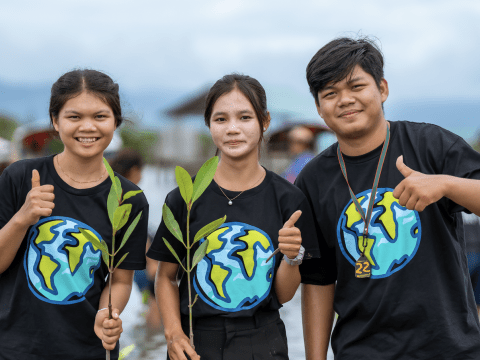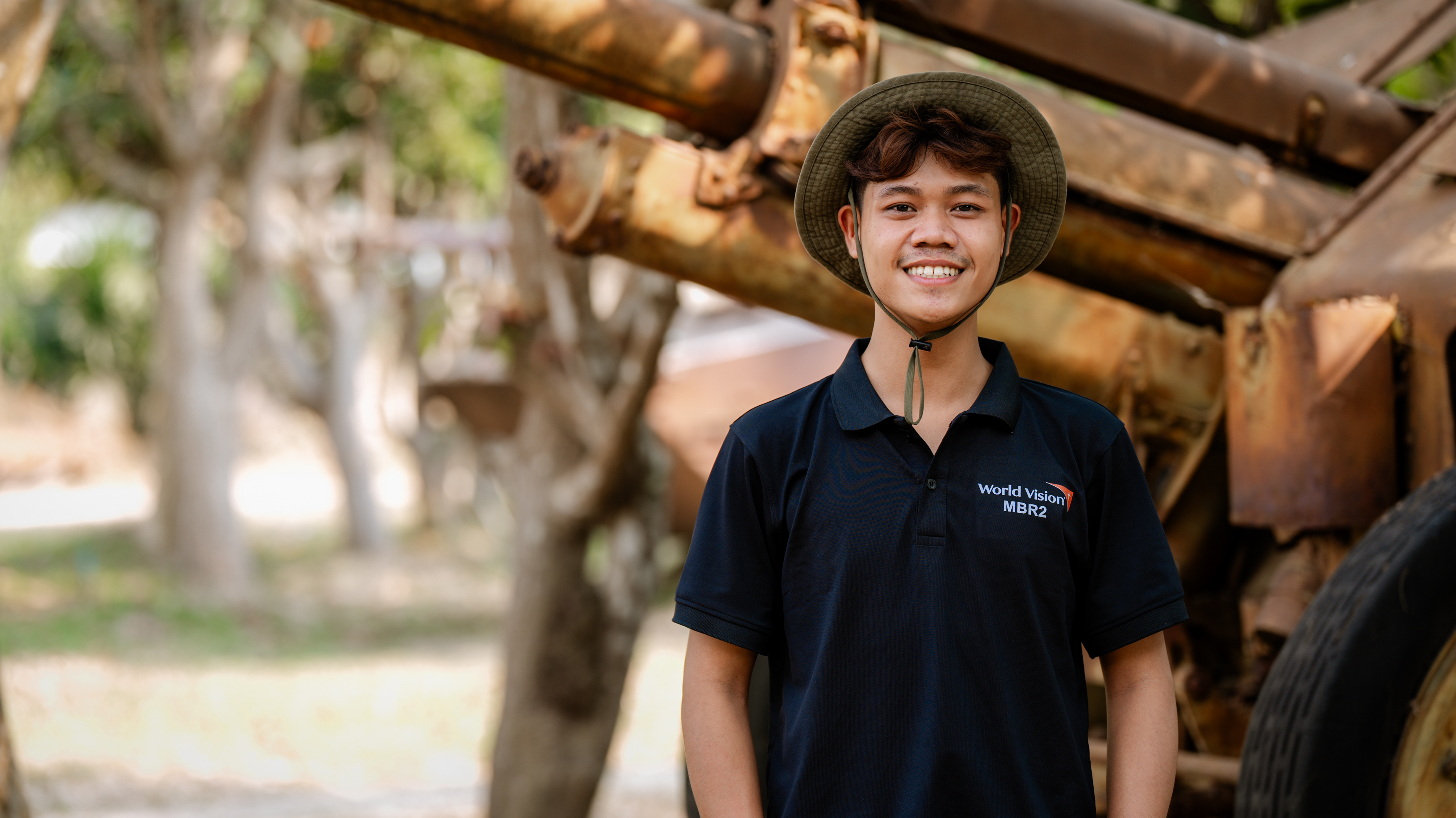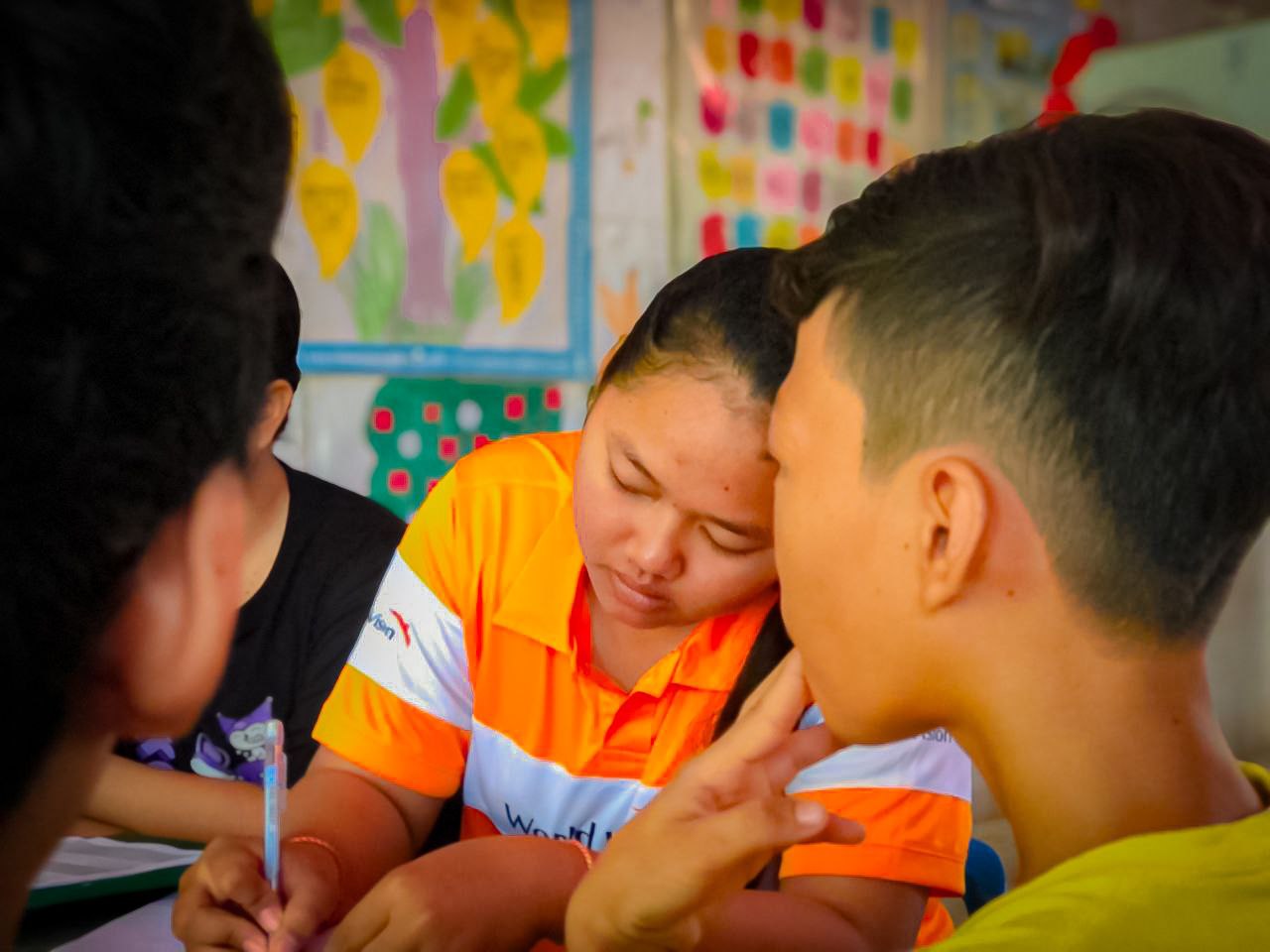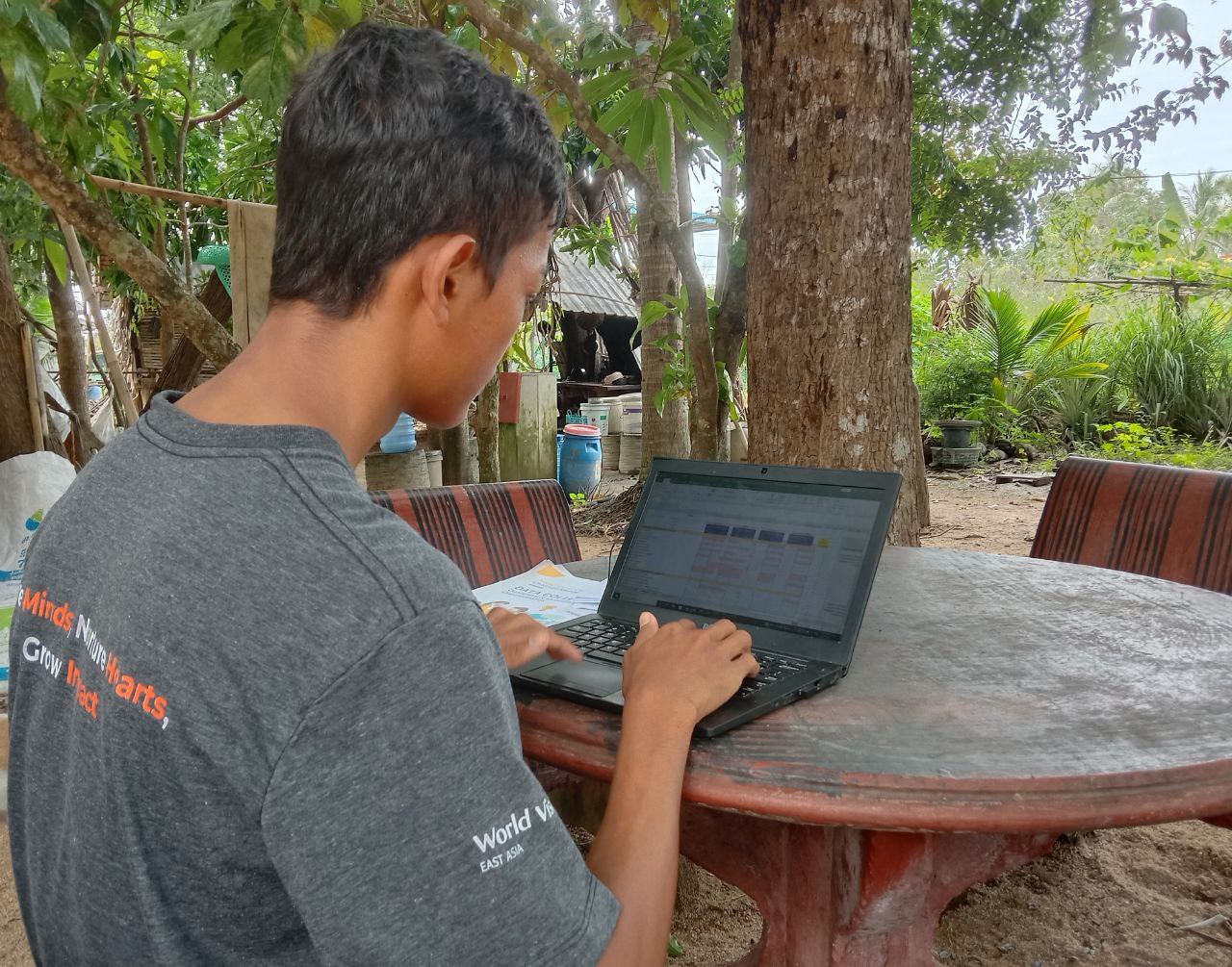Cambodian teenagers pave the way for climate action

Four adolescents from Cambodia are taking advanced steps to address the issue of climate change in their communities. Aged between 16 and 18 years old, Ms. Saviet Choeng, Mr. Narin Chhon, Ms. Souy Yuth, and Mr. Chanthorn Chorn have been leading research in their community to understand how children are already affected by climate change.
Their research, “Better Understanding the Impact of Climate Change and Disasters in Cambodia’s Rural Communities“, involved 98 participants, including children, youth and community leaders from Kampong Thom, Banteay Meanchey and Kampong Chhnang provinces.

Last August, the four youngsters led interviews and focus group discussions on their respective provinces, which are significantly affected by natural disasters. The results of their research, part of a regional effort by World Vision in East Asia, have highlighted alarming findings regarding impacts on Cambodian children’s well-being as a direct result of climate change.
Among all natural disasters, 92% of the children interviewed reported suffering from extreme heat in the past 12 months, severely affecting their daily life:
"When given the tools and opportunities, meaningful change in our communities can also be driven by us young people." Ms. Souy, 18-year-old researcher.

“This year, the heat lasted a long time, and it killed our crops and animals,” said a girl from Kampong Thom during an interview. “It’s hard to study when it’s so hot, and my family doesn’t have enough food,” another remarked.
The study also discovered that crop failures and food shortages had a significant impact on children’s lives, including producing physical health issues, mental stress and diminished family livelihoods.
Beyond the study exercise, the four young researchers formulated recommendations to the local authorities for action against climate change: “We proposed solutions such as tree plantations, reducing plastic use and organising clean-ups. By teaching others to cut down waste and improve waste management, we also get to demonstrate our creativity and commitment to building a more sustainable future,” Narin explained.

This research offers a platform to share the voices of vulnerable children and, at the same time, the of duty and heightened responsibility: “I am happy and proud that our team has the chance to perform this study given that it genuinely represents the difficulties in our communities,” said Souy.
“After hearing their stories, I feel emotionally connected to my community and inspired to work harder,” said Narin.
Following the completion of the research, the four youngsters joined national and international platforms to share their observations. The fruits of their work were presented to the Royal Government of Cambodia and development partners during the Climate Change summit organised by the Ministry of Environment and reached a continental bandwidth during the latest Asia-Pacific Ministerial Conference on Disaster Risk Reduction in Manila, Philippines.
“Through our efforts and findings, it shows that when given the tools and opportunities, meaningful change in our communities can also be driven by us young people,“ said Souy.